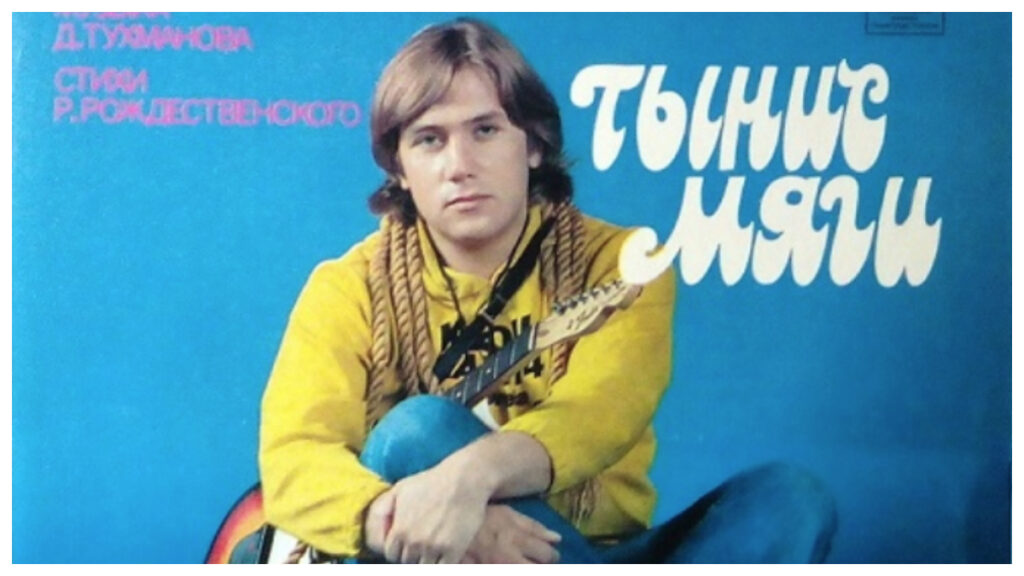The Estonian singer, Tõnis Mägi, sang the theme song of the 1980 Moscow Olympics.
At 4pm local time, on 20 July 1980, the Olympic flame was lit in the Estonian capital, Tallinn, that became the host city of the Moscow Olympics sailing programme. So far, it’s the only time Estonia – then occupied by the Soviet Union – has been given the opportunity to hold an Olympic competition.
Tallinn was chosen the host city of sailing and yachting programme, part of the modern Olympics since its first games in 1896, due to Moscow’s long distance from the sea. Latvia’s (then also occupied by the Soviet Union) capital Riga, about 100 kilometres (62 miles) closer to Moscow, was also considered as the host city, but the local communist apparatchiks in Tallinn managed to persuade their Russian colleagues otherwise.
Because of the inclusion of the Estonian Soviet Socialist Republic, as it was then called, in the Olympic programme, Moscow also paid more attention than usual to the Estonian cultural scene.
The Soviet Central Television showed a mini-documentary – all sugar-coated with Communist-style propaganda, of course – about Estonia. The cultural programme of the opening ceremony of 1980 Summer Olympics in Moscow, under the watchful eye of the then-Soviet leader, Leonid Ilyich Brezhnev, even featured Estonian folk dancers who performed their traditional routines in colourful folk costumes.
An opportunity was also given to one Estonian artist to sing one of the official Moscow Olympics theme songs, called “The Olympiad”.
It wasn’t the only theme song. Shostakovich’s 1947 work, “Festive Overture”, was the signature of the games, “Stadium of My Dreams” was used to accompany the parade of nations, Eduard Artemiev’s arrangement of Baron Pierre de Coubertin’s “Ode to Sport” was the soundtrack to the lighting of the cauldron and a song called “Do svidanja, Moskva” was performed by Lev Leshchenko at the games’ closing ceremony. But “The Olympiad” is perhaps one of the best known.
At the time, the most well-known Estonian artist in the rest of the Soviet Union was Jaak Joala (1950 – 2014). In fact, back then, Joala was more admired in Russia than in his homeland. Most of his songs were written by the Russian composers – David Tukhmanov and Aleksandr Zatsepin – and sung in Russian. In Estonia, Joala even earned the nickname, the Kremlin’s Nightingale.
Joala wanted to sing the theme song, but for unspecified reasons, this opportunity went to another Estonian singer, two years his senior but virtually unknown outside Estonia – Tõnis Mägi.
The song, called “Олимпиада-80” in Russian, was written by David Tukhmanov and Robert Rozhdestvensky and is a rather funky tune. Various video versions were filmed – two in Moscow and one in Tallinn, showing Mägi in front of the specially-built Olympic Sailing Centre in Pirita.
In 2020, Mägi told the Estonian TV-channel, TV3, that the song made him a “superstar” in the Soviet Union. “Everyone knew me [after that]. It was a superhit,” he said.
Soon after, Mägi took an advantage of the song’s success, embarking on endless tours all over the Soviet Union – at the time, the only opportunity for an Estonian artist to break through to mass market, as the West was inaccessible behind the communist-imposed Iron Curtain. He continued touring the Soviet Union throughout early to mid-80s, abruptly ending it in 1987, after which he focused on writing and singing songs in Estonia and in Estonian.
Somewhat unexpectedly perhaps – considering his earlier career – Mägi instead became one of the stars of the Estonian Singing Revolution in 1988. His song, “Koit” (Estonian for “dawn”), became one of the most important and symbolic songs of the Singing Revolution and is now one of the staples at the country’s song celebrations.
Tõnis Mägi, now in his seventies, has continued to write and sing songs – his contemplating and somewhat melancholic songwriting style a far cry from the disco groove of “The Olympiad” – to this day and is widely considered as one of the best Estonian singer-songwriters of his generation.
The Olympiad*
The Olympic gold flame soars high
And calls us
The Earth will be happy and young
We need to do everything
So that the Olympic flame never goes out
The sun rises in the sky as if for the first time
The start is a long way away
But Moscow has awoken
Amid this celebration
Amid the Earth.
Oh, how they walk tall down the festive streets
The queens of swimming, the kings of boxing
Today you can’t hide away from sport
There is no refuge from sport
The stadium rumbles
Like the onset of an earthquake
The far distance will repeat a hundred times the hum of the stadium
The sun shines proudly in the sky like a medal
The Olympic gold flame soars high
And calls us
The Earth will be happy and young
We need to do everything
So that the Olympic flame never goes out
The sun rises in the sky as if for the first time
We will remember this bright day
For a long time
The Earth will be happy and young
Moscow is vast
The flags fly over it
Like a colourful multitude of clouds.
Today mankind will be better and more kind
In sport there are rivals,
But no enemies.
Today you can’t hide away from sport
There is no refuge from sport
Today there will be more joy and warmth
On the Earth
The hum of the stadium will echo a thousand times in the far distance
The sun shines proudly in the sky like a medal
The Olympic gold flame soars high
And calls us
The Earth will be happy and young
* Translated from Russian by Lyrics Translate.
Cover: Tõnis Mägi on the cover of the vinyl version of the “The Olympiad” (“Олимпиада-80”).

